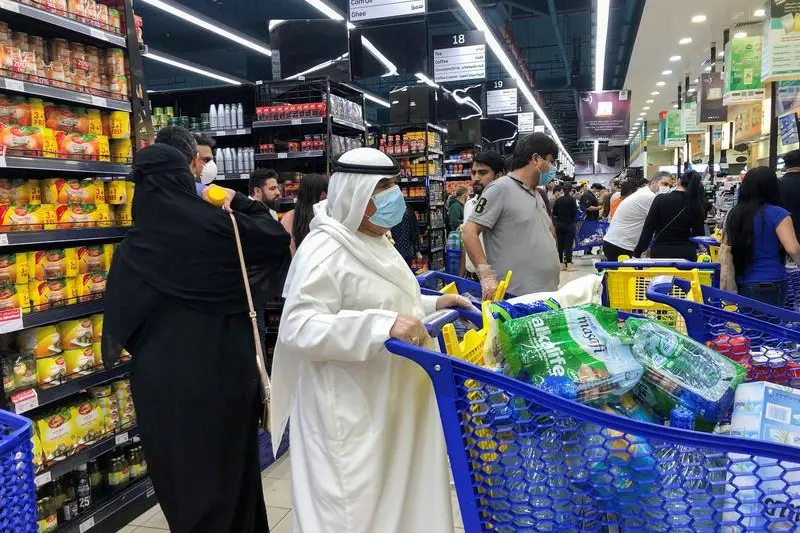PHOTO
The risk of Covid virus spreading through frozen food packaging is extremely low in the UAE as the food inspection departments in the country follow stringent safety protocols while handling such items, pointed out a senior official from the Dubai Municipality.
The comments come following a recent revelation by China's disease control authority that contact with frozen food packaging contaminated by living new coronavirus could cause infection.
Allaying such concerns, the Dubai Municipality official said: "Food businesses in Dubai follow strict protocols and people with illness do not work in the food business. Consumers needn't be worried about these aspects of safety."
He added: "The scientific organisations have clearly stated that the risk of food packaging being a source of viral particles is anyway extremely low. Covid is not a food borne infection."
Fears over frozen food packets carrying the contagion became pronounced after the Chinese authority on its website suggested it is possible for the virus to be transported over long distances through the packages.
However, doctors in the UAE asked people not to be overly scared because of such revelations.
Dr Rakesh Kumar Gupta, pulmonology specialist, Lifecare Hospital, Musaffah, Abu Dhabi, said: "It's an observation as per the China's Centre for Disease Control (CDC) that calls for caution, but not misplaced apprehension. They analysed 3 million samples, and in only about 22 samples found living coronavirus on the surface of the frozen marine fish packages. Earlier as well, it was found that the virus can be carried over a long distance on the frozen packaging surfaces. Not only Covid, but any virus or bacteria can live for a long time on cold surfaces."
Handle packages properly
"Handling of the packaging must be done properly. Packaging materials should be cleaned thoroughly using soap and water. People should not touch eyes or mouth while handling the packaging. They should wash their hands properly after touching these surfaces," he pointed out.
Shopkeepers are also advised to take all precautions while storing and handling these products. They are being warned to avoid direct contact with these packages once received from big stores.
"They should frequently clean and sanitise the surfaces of their refrigerators where they store these products," added Dr Gupta.
Follow sanitary precautions
Doctors in the UAE also suggest that as there is evidence that the virus can survive for a few days on infected surfaces, consumers should be aware of its proper usage to reduce any risks, although such dangers are much less compared to air borne infection.
Dr Srinivas Patnaikuni, specialist gastroenterologist with Prime Medical Centre Burjuman Branch, said: "People should follow proper sanitary precautions like washing the hands after removing the outer cover of the package, heating the food to at least above 20 degrees centigrade, and sanitising the surfaces properly after consumption of food. These steps will significantly bring down the risk of infection."
He explained: "The elderly population and people with lower immunity and chronic lung diseases need to take more precautions since they are at a higher risk. It's advised they should consume freshly cooked food rather than stored or packaged food."
While Covid-19 virus has been found on frozen food items and other packaged items in China and New Zealand, experts stressed that it plays an insignificant role in its spread.
Dr Shakeel Ahmed Shah, general practitioner, Aster Clinic, underlined: "People who are handling the international/local frozen shipments need not worry while carrying out their duties but they must follow the hand hygiene procedures."
"Some people have become really obsessed with sanitising since the start of the pandemic and are scared to touch any item. But as per the CDC, there is no evidence that transmission of Covid-19 happens through food or any packaged item. The simple advice in this pandemic is to maintain social distancing, follow hand hygiene practices and wear a face mask while outside," said Dr Shah.
How to handle frozen eatables
>Wash your hands after removing the outer cover of the package
>Heat the food to at least above 20 degrees centigrade
>Sanitise the surfaces properly after consumption of food
Copyright © 2020 Khaleej Times. All Rights Reserved. Provided by SyndiGate Media Inc. (Syndigate.info).





















